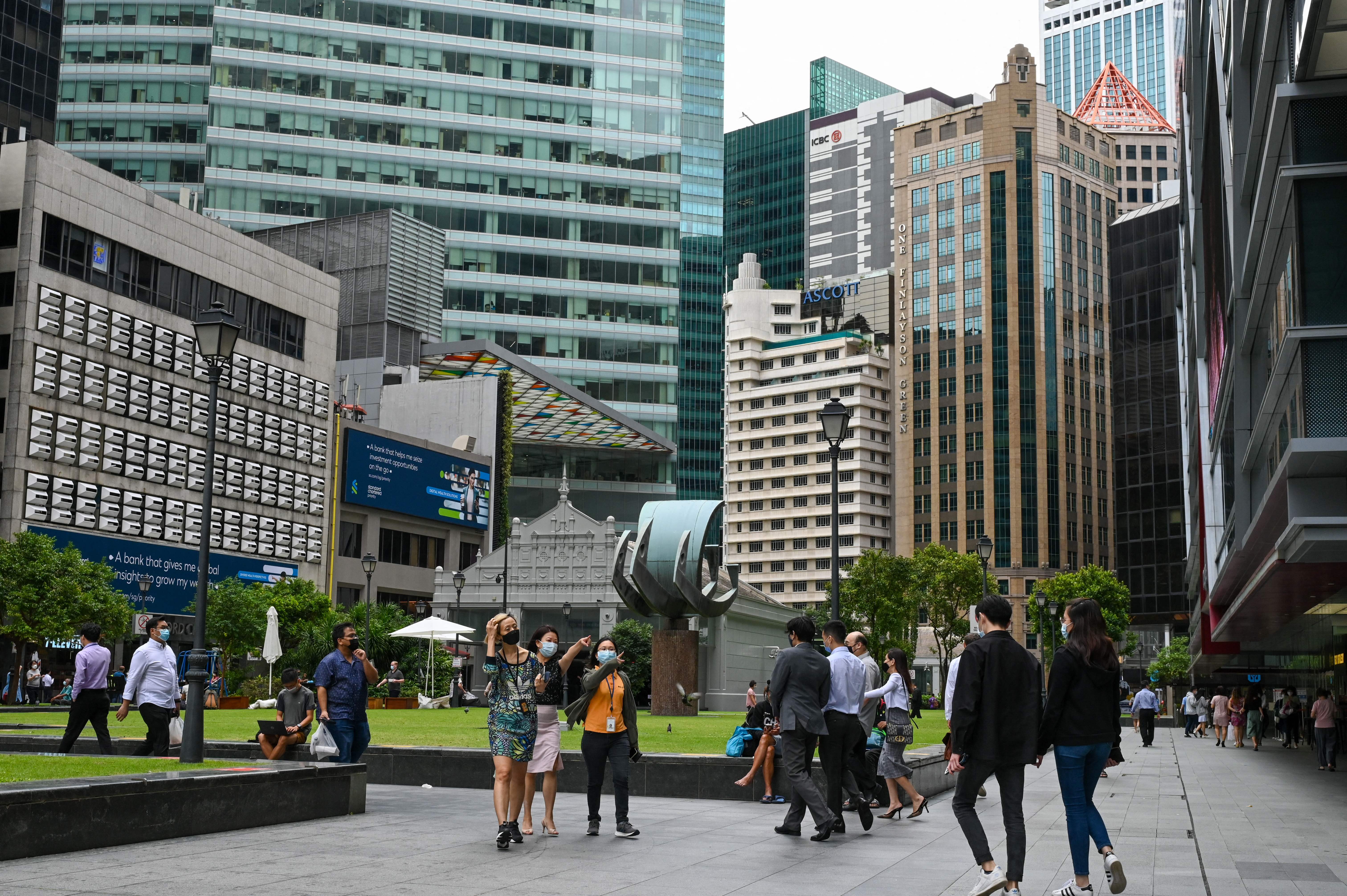
Office workers walk out for lunch break at Raffles Place financial business district in Singapore on January 4, 2022.
Roslan Rahman | AFP | Getty Images
SINGAPORE — People in Singapore will lose their fully vaccinated status after 270 days if they do not take booster shots, the government announced on Wednesday.
Protection from the primary series vaccination wanes and is “substantially reduced six months after the last dose,” Singapore’s health ministry said in a press release.
The policy will be in force from Feb. 14, 2022.
The Southeast Asian country is not the first to take such a step. Similar policies have been in place in Israel and Bahrain since October.
In December, top U.S. infectious disease expert Dr. Anthony Fauci told CNBC that the definition of fully vaccinated could change.
Boosters increase protection against infection and severe illness from the omicron variant, the ministry said. Around 87% of Singapore’s total population has received two shots under the national vaccination program, and 42% of the population has received booster shots.
Fully vaccinated statuses will expire after around nine months, but Singapore recommends booster shots for those 18 years and above after five months.
“Persons aged 18 years and above who completed a primary vaccination series should receive a booster dose of an mRNA vaccine no later than 270 days after the last dose in the primary vaccination series,” said the press release.
That means people who opted for non-mRNA vaccines will need to receive an mRNA shot as a booster.
However, the press release suggested that a non-mRNA vaccine by Novavax may be available as a booster shot before the deadline.
“For this group, most will not be due for [boosters] for some time,” the health ministry said. “We expect the Novavax vaccine, which is a non-mRNA vaccine, to be available to them as an option by then.”
Those who take non-mRNA vaccines in Singapore have to take three doses as part of the primary vaccination series.
The first two doses are taken 21 days apart, and people are eligible for a third shot three months after the second dose. The fully vaccinated status will expire 270 days after the third dose.
Novavax has not been approved for use in Singapore, but Singapore’s director of medical services at the health ministry, Kenneth Mak, told reporters he’s optimistic it will be authorized.
“We anticipate it will have an important role as a non-mRNA vaccine alternative for the purposes of boosting the population,” he said during the briefing, adding that it shows better effectiveness against delta and omicron compared to other non-mRNA vaccines that are already in use in Singapore.
More details will be provided on the use of Novavax as a booster once the expert committee has completed its discussions, he said.
Health Minister Ong Ye Kung said Singapore wants to have a “good portfolio of vaccines for our national vaccination program, mRNA as well as non-mRNA.”
The inclusion of Novavax will be “consistent with that posture we have held for all this while,” he said.
U.S. travel advisory
Ong also addressed the U.S. CDC’s decision to update Singapore’s Covid level to “unknown.”
The advisory was updated on Tuesday, and travelers were told to avoid going to Singapore.
“Because the current situation in Singapore is unknown, even fully vaccinated travelers may be at risk for getting and spreading COVID-19 variants,” the Centers for Disease Control and Prevention added.
Singapore’s health ministry is “engaging the U.S. Embassy as well as the U.S. CDC to provide them with the necessary data. Just to be clear, we know our situation very well,” Ong said.
He said the CDC is “not aware of our surveillance test numbers,” including 150,000 weekly polymerase chain reaction tests — which have a positive rate of under 2% — and 155 wastewater testing stations.
“We are sure that the incidence of Covid-19 in our community is currently low and stable,” he said.
Source: CNBC
